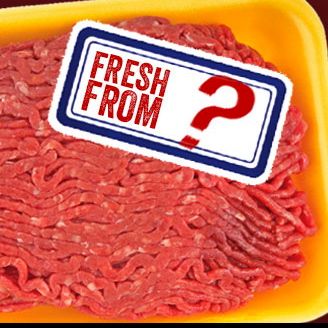The Agriculture Committee of the U.S. House of Representatives voted 38 to 6 to approve HR. 2393, a bill that would repeal Country of Origin Labeling (COOL) requirements for beef, pork and chicken products, while leaving intact the requirements for all other covered commodities, such as seafood and shellfish. This move comes just two days after the World Trade Organization (WTO) ruled against parts of the COOL law, a requirement that labels tell consumers what countries the meat is from: for example, “born in Canada, raised and slaughtered in the United States” or “born, raised and slaughtered in the United States.”
House Agriculture Committee Chairman Mike Conaway, R-Texas, a long-time supporter of the meat industry, stated “[w]e cannot sit back and let American businesses be held hostage to the desires of a small minority who refuse to acknowledge that the battle is lost.” But other congressmen don’t believe swift and immediate action is the way to react. Rep. Collin Peterson, D-Minnesota, ranking member on the Agriculture Committee, stated “I’m disappointed that the WTO ruled against the United States, but I think repealing COOL is premature…there are still several steps that have to occur before [retaliation from Canada and Mexico] would take place.”
What is interesting is how quickly Congress reacted to the WTO ruling, an international trade body with no input from American citizens. As mentioned in an earlier article, consumers are demanding increased transparency in the food supply, especially when it comes to knowing where their meat comes from. Moreover, more than 60 other countries have mandatory labeling requirements, including the European Union which requires indication of the country of birth, fattening and slaughter. Although the U.S. and EU laws are different, it is possible for Congress to review similar meat labeling laws and determine whether their is a suitable alternative to repealing the law outright. This may take some time, but it is better to get it right than to do it quick.
Congress is supposed to represent the people, not special interest groups; however, in passing this bill through committee it sends the message that their campaign donors are more important than voters. Time will only tell whether this bill goes anywhere, but I hope voters take notice and remember in November.


